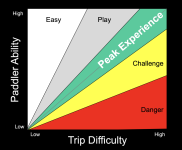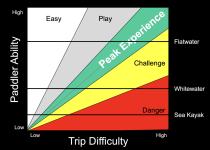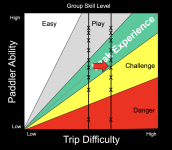Maybe he's using a double blade when off camera?
He does often use a bent shaft paddle. I’ve never used one so I don’t know if it’s possible to J-stroke with one.
Maybe he's using a double blade when off camera?
It is very possible to J-stroke with a bent shaft paddle. It is not quite as efficient or pretty as with a straight blade, but it does work. It is tough to do an effective Canadian stroke, but it can be awkwardly attempted. You can't do the Indian box silent stroke with a bent, or any other stroke that requires a palm roll rotation to the opposite power face.He does often use a bent shaft paddle. I’ve never used one so I don’t know if it’s possible to J-stroke with one.
I just watched few minutes of a Matt Post video. My guess is that he considers himself more of a videographer than a canoeist. It's OK to switch sides, but what I saw was a guy who put very little thought into his paddling. Even his posture in the boat didn't look like that of a paddler to me. That being said, from the little I saw, I think he has worthwhile content and is probably entertaining too, so I'm going to check him out.Interestingly enough the YouTuber Matt Posa I mentioned in a previous post paddles like this. Baffling how an extremely seasoned tripper hasn’t just instinctively developed a more efficient technique.
Confidence is kind of a delicate topic. It is easy to get too much of it
Maybe the title of the thread should be "Outdoor Incompetence."



Yup. My deep wilderness far off-trail bushwhacks with a heavy backpack trips that I used often do in my 20s-40s are well behind me. but I can at least now use one of my several accumulated canoes to do those heavier water based trips with relative ease. Sure, getting old sucks, but some will say that it beats the alternative of not getting old at all.My most immediate issue is adjusting my plans to account for an age-related decline in ability. I know what I'm doing, I have the experience and knowledge. I'm just not as capable as I used to be. Getting old sucks.
